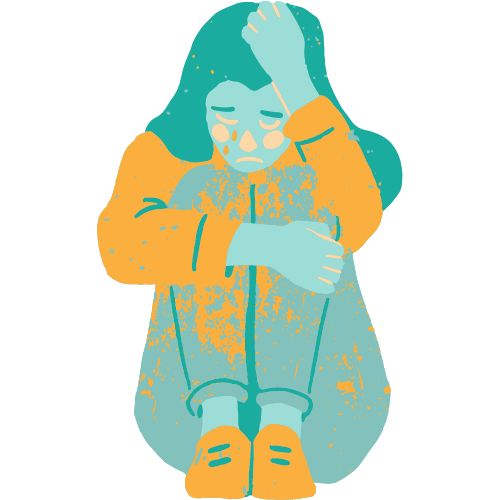Imagine not enjoying the things you once loved, being trapped by an invisible weight, and feeling hopelessly stuck. This is how individuals experiencing depression describe their daily lives. This is a condition that makes even the simplest tasks, like getting out of bed, feel impossible to do. For this 6th blog in the “Depression in Detail” series at Greater Houston Counseling Services, we aim to provide clarity and understanding about the spectrum of depressive disorders, bringing awareness to the different kinds of depression.
What are the different kinds of Depression?
Recognizing the different kinds of depression is crucial for healing. Let’s explore:
Major Depression

This type leaves you in deep sadness and disinterest in life, affecting one’s ability to enjoy previously loved activities.
- Symptoms: Profound sadness, loss of interest, appetite or weight changes, sleep issues, feelings of worthlessness.
- Impact: Severely disrupts daily life, making tasks overwhelmingly difficult.
Persistent Depressive Disorder (Dysthymia)

Dysthymia is a different kind of depression that is less intense, yet more chronic casting a persistent gloom.
- Symptoms: Chronic depressed mood, present more days than not, for at least two years.
- Impact: Its long duration can significantly affect happiness and quality of life.
Seasonal Affective Disorder (SAD)
SAD is a cyclical form that typically arises in the colder months.

- Symptoms: Fatigue, depression, and social withdrawal, starting in fall/winter and improving in spring/summer.
- Impact: Disrupts overall well-being on a seasonal basis.
Understanding the Effects
These different kinds of depression affect everyone differently, but it often makes daily tasks and personal relationships challenging. It’s crucial to acknowledge these differences and seek appropriate help. No one should have to navigate these complexities alone.
Treatment Options
Treatment will vary by type and severity but generally includes:
- Psychotherapy: Talking therapies like cognitive-behavioral therapy (CBT) and interpersonal therapy (IPT) can be very effective.
- Medications: Antidepressants can help manage symptoms, but they work best in combination with therapy.
- Lifestyle Changes: Exercise, a healthy diet, and enough sleep can support your treatment plan.
Your Next Step
If you’re facing any of these different kinds of depression, remember, you’re not alone. Greater Houston Counseling Services is here to help. We offer tailored support and treatment to guide you through your journey to recovery. This condition doesn’t have to define your life. If you or a loved one is struggling, contact us to book an appointment. Together, we can face depression head-on and move towards a brighter future.